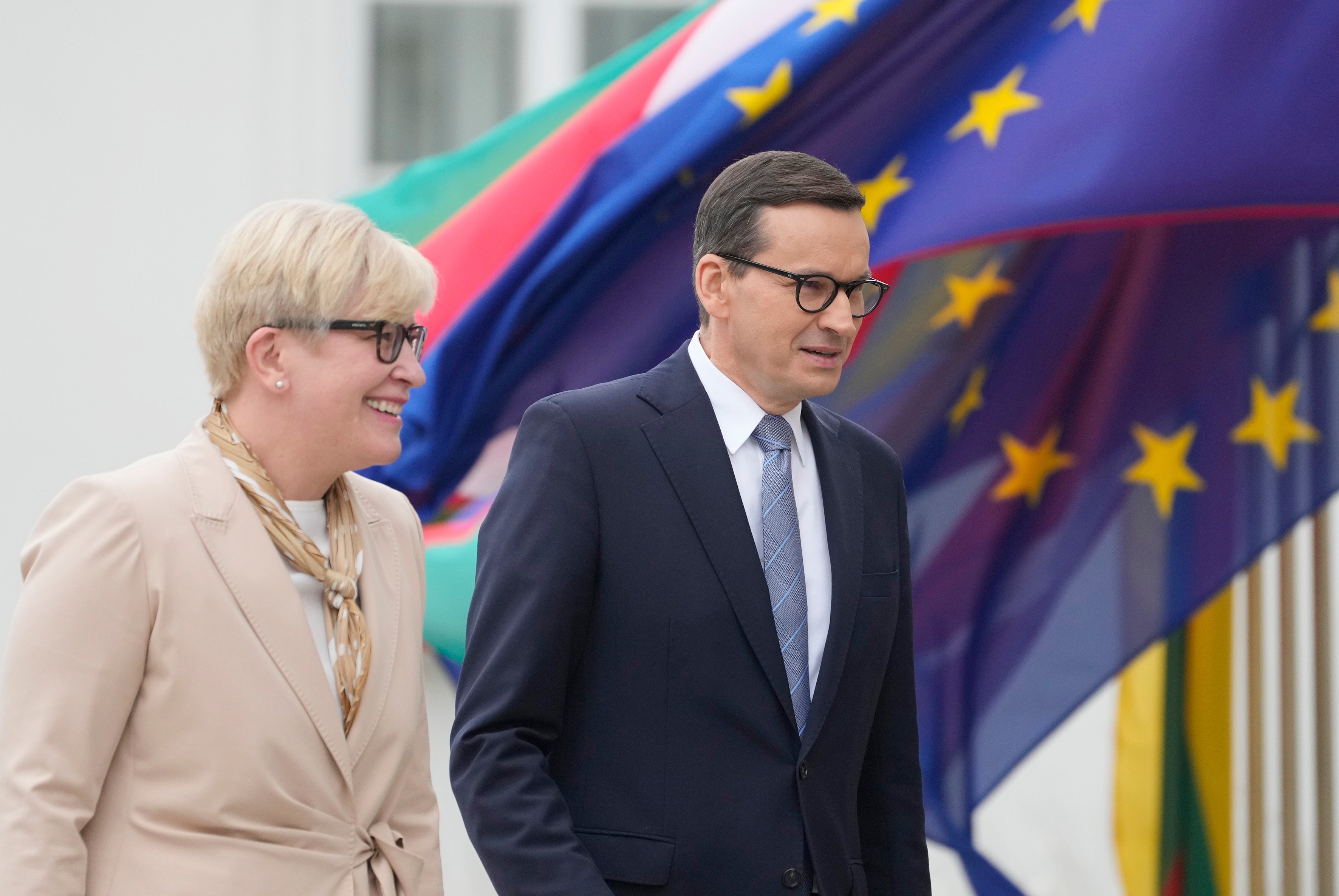Poland's, Lithuania's PMs discuss higher security, migration
The prime ministers of Poland and Lithuania say that tighter security at their borders with Belarus was the best way of easing pressure from migrant inflows there, as they expect the “hybrid attack” from Belarus to intensify

Your support helps us to tell the story
From reproductive rights to climate change to Big Tech, The Independent is on the ground when the story is developing. Whether it's investigating the financials of Elon Musk's pro-Trump PAC or producing our latest documentary, 'The A Word', which shines a light on the American women fighting for reproductive rights, we know how important it is to parse out the facts from the messaging.
At such a critical moment in US history, we need reporters on the ground. Your donation allows us to keep sending journalists to speak to both sides of the story.
The Independent is trusted by Americans across the entire political spectrum. And unlike many other quality news outlets, we choose not to lock Americans out of our reporting and analysis with paywalls. We believe quality journalism should be available to everyone, paid for by those who can afford it.
Your support makes all the difference.The prime ministers of Poland and Lithuania said on Friday that tighter security at their borders with Belarus was the best way of easing pressure from migrant inflows there, as they expect the “hybrid attack” from Belarus to intensify.
Poland's Mateusz Morawiecki and Lithuania's Ingrida Simonyte also said that stepping up bilateral cooperation in business, infrastructure and other sectors would help to act as a bulwark against hostile pressure mounting on the European Union s eastern border. They signed a declaration of wide cooperation.
Morawiecki and Simonyte, as well as their government members, discussed ways of preventing illegal migration and enhancing security on the European Union's eastern border.
“We are preparing for a scenario of a long-term dispute around our borders and we will be strengthening these borders through our cooperation but also through a stronger physical protection against the illegal migration, which the (Belarusian President Alexander) Lukashenko regime has turned into a weapon,” Morawiecki said following the talks.
He said that joint investments and projects will bring the the two countries closer not only economically but also in the face of the current geopolitical challenges.
Poland, Lithuania and Latvia have seen a sharp rise in crossings by Iraqis, Afghans, Syrians and Africans from Belarus in recent months. The three EU countries accuse Belarus of pushing the migrants across their borders and say they view that as an element of “hybrid warfare” against the EU.
On Wednesday, EU president, Ursula von der Leyen, said that by pushing migrants at the EU eastern border the “regime in Minsk has instrumentalized human beings," in what she called a “hybrid attack to destabilize Europe.”
She expressed support for Lithuania, Latvia, and Poland in their efforts to block these acts.
Poland's Defense Minister Mariusz Blaszczak said that he and his Lithuanian counterpart, Arvydas Anusauskas discussed holding joint military drills and developing cooperation within the Polish-Lithuanian-Ukrainian militarty brigade that is based in Lublin, in eastern Poland.
Germany's Der Spiegel magazine said Friday that Germany is stepping up patrolling of its 460-kilometer (280-mile) border with Poland because of the increased number of illegal crossings and smuggling attempts into Germany, mainly of migrants from Iraq who had crossed into the EU from Belarus.
The migrants issue arose after Western countries imposed sanctions on Belarus for its harsh repression of opposition after authoritarian President Alexander Lukashenko won a sixth term last year in elections that the West and the opposition say were rigged.
Simonyte's talks in Warsaw were also to include broader issues, linked to the EU’s future and the situation in Afghanistan, following the Taliban’s taking of control there.
Simonyte was to meet, as well, with the speakers of both chambers of Poland’s parliament, for talks that were to include bilateral matters.
Taking part in the bilateral talks were the ministers of defense, of interior matters, of climate, finance, social policy, health, infrastructure and education.
___
Frank Jordans in Berlin contributed.